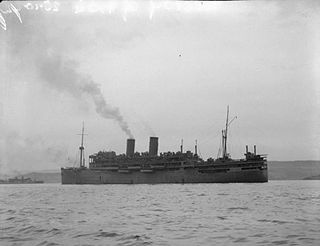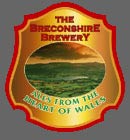
A passenger ship is a merchant ship whose primary function is to carry passengers on the sea. The category does not include cargo vessels which have accommodations for limited numbers of passengers, such as the ubiquitous twelve-passenger freighters once common on the seas in which the transport of passengers is secondary to the carriage of freight. The type does however include many classes of ships designed to transport substantial numbers of passengers as well as freight. Indeed, until recently virtually all ocean liners were able to transport mail, package freight and express, and other cargo in addition to passenger luggage, and were equipped with cargo holds and derricks, kingposts, or other cargo-handling gear for that purpose. Only in more recent ocean liners and in virtually all cruise ships has this cargo capacity been eliminated.

Port Bell is a small industrial centre in the greater metropolitan Kampala area, in Uganda. Port Bell has a rail link and a railroad ferry wharf used for International traffic across Lake Victoria to Tanzania and Kenya.

A merchant ship, merchant vessel, trading vessel, or merchantman is a watercraft that transports cargo or carries passengers for hire. This is in contrast to pleasure craft, which are used for personal recreation, and naval ships, which are used for military purposes.

The Second Battle of Sirte was a naval engagement in which the escorting warships of a British convoy to Malta frustrated a much more powerful Regia Marina squadron. The British convoy was composed of four merchant ships escorted by four light cruisers, one anti-aircraft cruiser, and 17 destroyers. The Italian force comprised a battleship, two heavy cruisers, one light cruiser, and eight destroyers. Despite the initial British success at warding off the Italian squadron, the battle delayed the convoy's planned arrival before dawn, which exposed it to intense air attacks that sank all four merchant ships and one of the escorting destroyers in the following days. The battle occurred on 22 March 1942 in the Mediterranean, north of the Gulf of Sidra and southeast of Malta, during the Second World War.

The First Battle of Sirte was fought between the British Royal Navy and the Regia Marina during the Mediterranean campaign of the Second World War. The engagement, largely uneventful, took place on 17 December 1941, south-east of Malta, in the Gulf of Sirte.

The Malta convoys were Allied supply convoys of the Second World War. The convoys took place during the Siege of Malta in the Mediterranean Theatre. Malta was a base from which British sea and air forces could attack ships carrying supplies from Europe to Italian Libya. Britain fought the Western Desert Campaign against Axis armies in North Africa to keep the Suez Canal and to control Middle Eastern oil. The strategic value of Malta was so great the British risked many merchant vessels and warships to supply the island and the Axis made determined efforts to neutralise the island as an offensive base.

A Landing ship, infantry (LSI) or infantry landing ship was one of a number of types of British Commonwealth vessels used to transport landing craft and troops engaged in amphibious warfare during the Second World War. LSIs were operated by the Royal Navy, British Merchant Navy, Royal Canadian Navy, Royal Indian Navy, and Royal Australian Navy. They transported British Commonwealth and other Allied troops in sea assaults and invasions throughout the war.

Attack transport is a United States Navy ship classification for a variant of ocean-going troopship adapted to transporting invasion forces ashore. Unlike standard troopships – often drafted from the merchant fleet – that rely on either a quay or tenders, attack transports carry their own fleet of landing craft.

USS Electra (AKA-4) was an Arcturus-class attack cargo ship named after Electra, a star in the Pleiades star cluster in the constellation Taurus. She served as a commissioned ship for seven years.

RMS Viceroy of India was an ocean liner of the Peninsular and Oriental Steam Navigation Company (P&O). She was a British Royal Mail Ship on the Tilbury–Bombay route and was named after the Viceroy of India. In World War II she was converted to and used as a troopship. She was sunk in the Mediterranean in November 1942 by German submarine U-407.

USS Mizar (AF-12) was a United Fruit Company cargo and passenger liner that served as a United States Navy Mizar-class stores ship in World War II.

Albatros is a sailing ketch built in the Netherlands in 1899. Trading as a cargo sailing ship until 1996, she is now used as a training vessel.

HMS Glengyle was a 9,919 GRT cargo ship that served in the Second World War as an infantry landing ship (large) of the Royal Navy. She carried Commonwealth and other Allied troops in amphibious operations. Glengyle was able to make good speed on long ocean voyages to operational areas and then, by means of the many landing craft carried aboard, land assault infantry, vehicles, and stores on contested shores.
An Empire ship is a merchant ship that was given a name beginning with "Empire" in the service of the Government of the United Kingdom during and after World War II. Most were used by the Ministry of War Transport (MoWT), which owned them and contracted their operation to various shipping companies of the British Merchant Navy.

A cargo liner, also known as a passenger-cargo ship or passenger-cargoman, is a type of merchant ship which carries general cargo and often passengers. They became common just after the middle of the 19th century, and eventually gave way to container ships and other more specialized carriers in the latter half of the 20th century.
This page is based on this
Wikipedia article Text is available under the
CC BY-SA 4.0 license; additional terms may apply.
Images, videos and audio are available under their respective licenses.

















